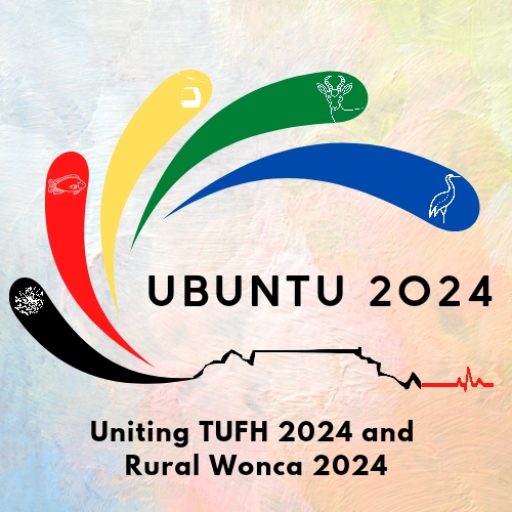Welcome to the documentary showcase at Ubuntu 2024! Our conference aims to highlight the power of local communities and their actions in driving positive change. Through the medium of documentaries, we have the opportunity to delve deeper into the heart of various local initiatives, capturing their significance and impact.
Ubuntu Documentaries session is planned on Wednesday 11 September 2024,
10:00 AM – 12:00 PM South African Time.

Ubuntu Documentaries
Ubuntu72
Learning POCUS in the Highlands: Innovating care for Rural Mexico
Paola Rodríguez, Francisco Terán Valencia
Compañeros En Salud, Mexico
In rural contexts, where technology and basic resources such as electricity, roads, or health workers are limited, barriers to access healthcare are exacerbated. In the highlands of Chiapas, an individual can take more than 7 hours to reach a specialist – this is due to the geographical location of communities, scarce and centralized second and third level care facilities, and limited financial resources. In case of emergencies, the time required to access needed services can make the difference between life and death.
This short documentary portrays the stories of health workers and patients in rural Chiapas who have witnessed the positive impact of education and technology on healthcare services in this remote region. In the past year and a half, Dr. Bruno Vargas, a a POCUS-fellowship trained general practitioner at the local NGO Compañeros En Salud (Partners In Health Mexico), has trained physicians, nurses, midwives and specialists in Point-of-Care Ultrasound (POCUS).
POCUS is a valuable skill that has gained popularity over the last few years, as it empowers health workers by performing ultrasounds at the bedside of the patient. It allows the clinician to make rapid diagnoses during emergencies due to traumatic injuries, cardiomyopathies, pulmonary afflictions, ophtalmic or musculoskeletal injuries, and can also help guide or change the management. For the health workforce, learning POCUS has marked the beginning of an era in their professional journey. For patients, POCUS has literally saved their lives, by allowing them to receive accurate diagnoses at clinics that are close to their communities.The implementation of POCUS by Dr. Bruno Vargas and PIH clinic staff is a clear example of how quality healthcare provision can be delivered in low resource settings and a demonstration of how this technology can be deployed to deliver greater health equity.
Ubuntu237
"Empowering Equity: Advancing Rural Healthcare through Reciprocal Community Investment in Rural Colombia"
Francisco Lamus, Jadith Lombo, Rosa Margarita Durán, Marco Fidel Avila, Erwin Hernando Hernandez-Rincon, Nelly Hernández, Camilo Correal, Martha Diaz, Diana Diaz, Arnoldo Barbosa, Natalia Reinoso Chavez
Universidad de La Sabana – Universidad del Tolima, Colombia
In Icononzo and Chaparral, Colombia, the “Rural Health for Health in Colombia” initiative represents a health revolution rooted in community collaboration and participatory action research. A coalition comprising rural communities, health institutions, and academia—including the Universities of La Sabana, Tolima, and the support of the Arctic University of Norway at Trømso—has set forth a transformative agenda that is redrawing the health equity landscape. This project transcends traditional health service provision, focusing on empowering communities through education and self care practices while fostering access to primary and complex healthcare. It is designed to bridge the health inequity gap evident between rural and urban populations, with an innovative approach that addresses healthcare at multiple levels—from prevention to specialized care. Critical to the project’s success is the synthesis of local needs with evidence based strategies that encompass social determinants of health. This approach ensures care continuity, sustainability, and improves health outcomes at costs manageable for rural communities. The enthusiasm and commitment of health personnel are pivotal in this endeavor, reflecting a joint investment in community welfare. At the heart of this movement is the construction of a robust support network, which has been instrumental in the project’s first phase. It encapsulates collaboration across all sectors of society, ensuring comprehensive coverage where no individual is left behind. Future phases of our initiative will enhance rural healthcare equity, focusing on reciprocal satisfaction for communities and health workers’ contributions. We aim to ensure that their investments in time and resources are rewarded with beneficial and affordable health outcomes. In conclusion, this initiative not only nurtures health but also seeds the ground for socio political stability, potentially healing the scars of long standing conflict. Join us to contribute to and learn from this rural health paradigm, paving the way for a healthier, equitable future for rural Colombia.
Ubuntu176
Beyond the Disaster: Unveiling the Impact of Armed Conflict on Mental Health
Khalid Mohammed, Eljezoli Mohammed, Walaa Mohamed
University of Gezira, Sudan
The importance of mental health as part of overall well-being underscores the need to understand how it is impacted during times of crisis. This research documentary aims to survey the effects of the ongoing armed conflict in Sudan on individuals’ mental health and well-being.
This documentary centers around a survey conducted to assess the impact of armed conflict on individuals residing in affected areas. It begins by emphasizing the intricate relationship between mental health and its susceptibility to various surrounding factors. To provide necessary context, the documentary offers insights into the prevailing conditions in the surveyed areas. Furthermore, it provides a historical overview of mental health and its management during times of wars and conflicts.
Transitioning to the work carried out by a group of students, the documentary highlights their efforts in conducting a study that includes interviews with individuals who have experienced conflict-ridden regions. The primary objective of this survey is to gain a comprehensive understanding of the impact on mental health and measure the prevalence of common disorders such as anxiety, depression, and post-traumatic stress disorder.
The documentary concludes by addressing the workshop organized by the study participants, which focuses on providing psychological support during times of crisis.
The documentary holds scientific significance as it sheds light on the impact of conflicts on mental health. The findings can be utilized in the planning and implementation of mental health support programs to enhance public health.
Ubuntu140
Convergence: Outreach Clinics to Promote Interprofessional Learning and Practice
Luzaan Africa, Gerard Filies, Firdouza Waggie, Labeeqah Jaffer, Lukhanyo Nyati, Mbalenhle Goba, Zenobia Heradien, Delia Meyer, Shamila Gamiet, Renier Coetzee
University of the Western Cape, South Africa
“Convergence” is a groundbreaking three-part docuseries that delves deep into the transformative realm of interprofessional education and collaborative practice (IPECP) within health professions education. In this series, we embark on a journey that celebrates the remarkable potential of diverse disciplines coming together and the benefits for students, patients, and clinical supervisors.
Part one of the docuseries offers a look into the students’ perception of the UWC interprofessional outreach clinics. Interprofessional learning (IPL) is a critical component in preparing student health professionals for collaborative practice upon graduation. Therefore, interprofessional education (IPE) has been incorporated into health professions education. However, within the IPE curriculum at the University of the Western Cape (UWC), IPL in clinical practice predominantly unfolds within in-patient settings, leaving a palpable gap in outpatient care. The UWC community outreach clinics provide an opportunity for IPL in an outpatient setting. Viewers will witness firsthand how students from diverse healthcare disciplines experienced working together to provide holistic, patient-centered care. Students will provide insights into the educational value of the outreach clinics to promote IPL, and its role in nurturing collaborative-ready graduates.
This documentary segment in the docuseries serves as a powerful testament to the profound impact of collaboration, inspiring viewers to envision a future where inclusivity and innovation drive healthcare forward. What sets this docuseries apart is its intimate portrayal of IPECP in action, offering viewers a firsthand look at the profound changes that occur when students from various backgrounds converge for a common purpose.
Ubuntu141
Getting to Zero: Identifying Critical Concerns of Gender Based Violence with the Communities near Cape Town South Africa
Judy Lewis, Michelle Andipatin, Hester Julie, Firdouza Waggie, Gugulethu Cebekulu, Jill Cupido-Masters, Elizabeth Dartnell
Women and Health Together For the Future / University of Conneticut / University of the Western Cape / SVRI, United States/South Africa
This documentary presents a close up look at the importance of university community engagement and problem solving including a summary of the key points, process and presentations of the WHTF/UWC/community symposium held May 11, 2023. More than 100 people from 7 countries interacted through presentations, panels, and small groups. Participants included WHTF Board, community members and activists, NGOs, UWC students, academic staff, researchers and South African government personnel. Elizabeth Dartnell, ED of the Sexual Violence Research Initiative
(SVRI) was the keynote. The documentary captures the participation of women from many communities and addresses the high levels of gender-based violence (GBV) in South Africa and around the globe. The discussion focused on how universities and communities can partner to reduce violence. The conference resulted in a report and a cross country collaborative research initiative. The most compelling parts of the film are the community stories and the programs
they have helped develop. SVRI found most GBV research is based in high income countries.
This documentary underscores the need for a global field organization that tackles violence against women and children ethically in LMICs and results in evidence of what works and what doesn’t to end violence against women. This must be identified by researchers in the settings closest to the local people.
